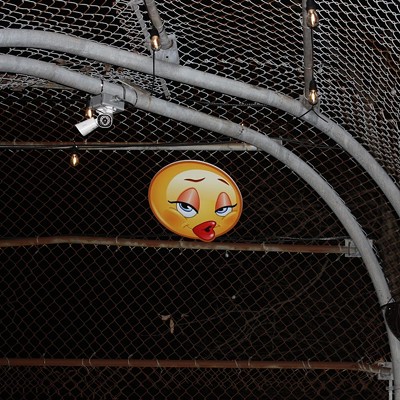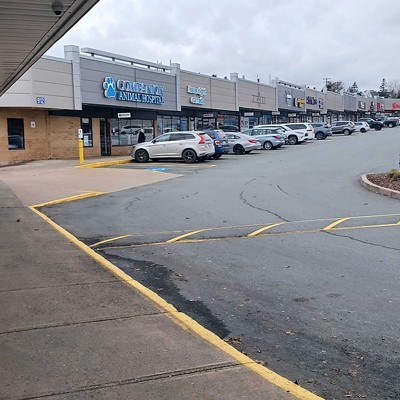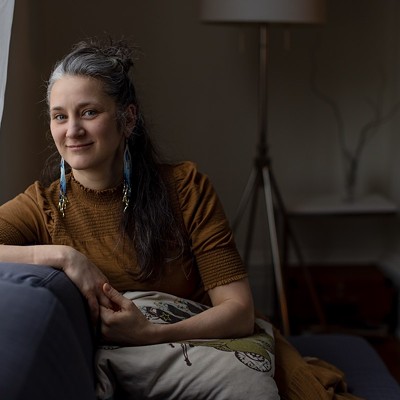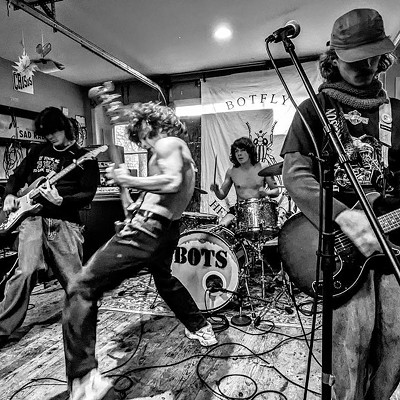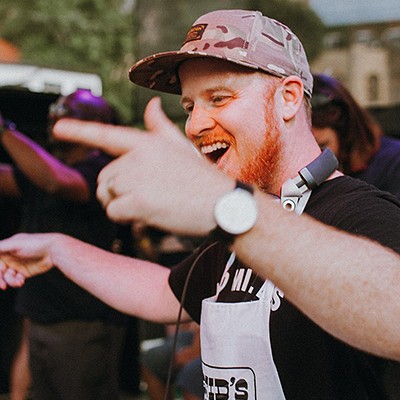![]() While you read, listen to a few tracks by Gypsophilia off their new album Minor Hope.
While you read, listen to a few tracks by Gypsophilia off their new album Minor Hope.
The name is a tip-off. Then take a single good look at the seven-piece called Gypsophilia and you'll get a sense of what you're in for. It's a gang of players, dressed in the best vintage clothing local thrift shops have to offer, coiffed with quirky styles, sporting mischievous grins and exuding a sense of adventure. As soon as the band hits its first note, it all comes together. The group embodies the spirit of early-20th-century, jazz-loving gypsies, bringing their mish-mash of diverse sounds to boisterous contemporary audiences ready to delve into their world.
The sounds of eastern Europe, mixed with the rhythmic guitar bounce of Django Reinhardt and '20s- and '30s-era jazz, entice audiences to get up from their chairs and dance. It's fun, fast-paced and one of the most original sounds to come out of Halifax in ages.
No wonder this group of talented young local musicians has been attracting big crowds over the past three years, making them the most popular band in the city without a record. That all changes this weekend when Gypsophilia releases its all-original debut, Minor Hope, an album that's set to take the group beyond the enthusiastic east-coast audiences and that will also show current fans a whole new side to their favourite dance act.
"In the recording studio it's absolute music," says composer and multi-instrumentalist Dani Oore. "It can have extra musical association in the lyrics, but the music is there for people to listen to. In the performance setting, where people are dancing, the music is a tool to communicate. It's a tool to get shit going."
Although the members of Gypsophilia claim to have no set leader, Alec Frith embodies the spirit of the band. After a bout of tendonitis left the former music student incapable of playing the bass guitar, his instrument of choice, he found inspiration in the tale of Django Reinhardt, the legendary French jazz guitarist, who played with two paralyzed fingers after a fire left him badly injured.
"At that time he looked like Django and he even had the facial hair," violinist Gina Burgess says about her first meetings with Frith. "I think he was the first person to dress like Django. I don't think he specifically went out and said, "I'm going to dress like Django,' it just became part of his personality at that time."
Frith responded to an online ad placed by rhythm guitarist Nick Wilkinson and started jamming on Reinhardt songs and other similar pieces from the Jazz era. After initial practices they decided to form a group and eventually added guitarist Ross Burns, saxophonist Dani Oore and double-bassist Adam Fine. They would later ask Oore's brother Sageev—on piano and keyboards—and Burgess to join.
Each member brought a new element to the collective sound. The Oores and Fine added a touch of klezmer and eastern-European styles from their other project, Kefi, a celebration of the group's Jewish ancestry through music. Burgess brought classical sounds from her musical training and besides Django, Frith incorporated contemporary funk, blues and reggae to the proceedings. Unlike modern jazz groups, Gypsophilia purposely did not add a drummer, relying on the rhythm of the bass and guitar to drive the music forward.
It became quickly apparent from its debut show at the 2004 Atlantic Jazz Festival that Gyspophilia wouldn't be an ordinary jazz act, since the audience's response was more than expected. Word spread on the back of their impromptu dance parties and moments of unpredictability. People of all ages started showing up to gigs in increasing numbers.
"I've played in so many different bands and now lots of people like this one," Oore says, laughing. "I think it might be the consistency of it. Here we're looking back at a style where rhythms and other elements are very steady."
"I like the fact that parents and grandparents can come listen to it," Frith says. "I don't know many people that play in bands that their grandmother can come out and enjoy. That's the great thing for me, because it gets everyone together."
In an effort to expand on its frentic performances, the group took to organizing shows at bigger venues, often renting out churches and gymnasiums for elaborate theme parties that included masquerades and '20s-themed events. "I think it was a natural thing," Dani Oore says. "Almost all of our other gigs, people were dancing. A lot of these shows, people were getting up and moving around a little. It just seemed natural to give people more space to move."
While the dance parties were a success, the band didn't have anything material to show for it and fans often asked the musicians where they could purchase a CD. Despite the fact that the group wrote original songs and played them live, it took almost three years to organize an actual recording.
Taking an idea from Halifax jazz drummer Jerry Granelli's band, V16, and Adam Fine's band, TFC, the members of Gypsophilia decided to record live off the floor at the Sonic Temple, using admission as a way to pay for the pressing of its debut. The seven-piece arranged for two days in January to produce a set of member-penned compositions. After laying down some tracks during the day, the band invited people to watch a live run-through of the disc, something that caught those used to the Gypsophilia dance parties off-guard.
"It was very intense, partially because some people went in expecting something different," Dani says. "Some people actually left when they found out it wasn't a dance party. People came in and were in their seats trying not to make any noise."
The results of those two nights is Minor Hope, an album that raises the stakes for Gypsophilia as an actual jazz entity. Like the different directions of its shows, Minor Hope touches upon the group's many influences and shows a quieter, as well as a slightly darker side, of the band.
The Dave Hillier-engineered disc kicks off with live favourite, "Gyre," a Frith composition that shows off the Django-gypsy sound the band has made its own. That leads into "HIV Jump," written by Dani Oore. The song starts as a regular 32-bar swing piece, but then quickly diverges, with erratic time signatures and classical phrasing. It's Oore's experimental stylistic approach that adds charm and uniqueness to the album.
"After getting a chance to work with a bunch of traditional songs in that style, I think I started to get inspired by this group that was getting together and playing regularly and by the interesting and challenging instrumentation—three guitars, violin, keyboard, bass," Oore says. "It was trying to see what different sounds you can get with that instrumentation and also how many different ways can you look at things with that chk-chk-chk of the rhythm guitar underneath it and it still make sense."
Wilkinson, noted by Frith as the most knowledgeable in the band in terms of the genres Gypsophila draws from, contributes the songs that are, perhaps, the best example of the melting pot that is Minor Hope. "Nicole's Song," "Special Shoes" (with its likeness to Louis Armstong's "Jeepers Creepers") and "Salle Verte" (written with Frith) feature his driving Django rhythm guitar and upbeat, playful tone, with the gypsy-esque melodies provided by other members of the band.
Although some songs wouldn't fit with the Gypsophilia live show, the band's talents shine through as not only directors and hosts of wild dance parties, but also as top-notch songwriters capable of holding their own with anything being produced on a local, if not national, level. That's not to say their CD-release show will be subdued.
"When we play live you really never really know what's going to happen," Frith says. "The music is so open-ended that when you come to a Gypsophilia show, it's not going to be the same as the last one and you never really know what's going to happen. Dani might jump off the stage and rip his clothes off. And it happens!"
Gypsophilia CD release party, May 19 at the Commons Room in the Holiday Inn, 1980 Robie (at Quinpool), 8:30pm. Tickets $6 at the door only, 492-2225 for info.
Johnston Farrow is a contributing writer for The Coast. He previously wrote a cover story on folk-singer Rose Cousins for the ECMA issue. He first met the Oores at an ugly-pants party, before Gypsophilia existed, and likes saying the word klezmer.



